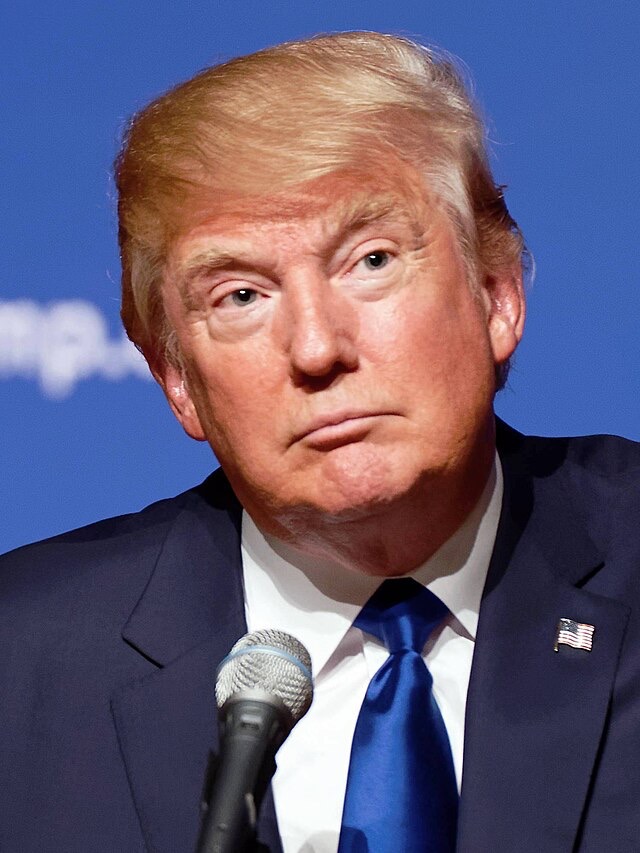In one of the most dramatic financial shakeups in recent years, the FTSE 100 plunged to its lowest level in over a year. This wasn’t just any ordinary market dip—this was a full-blown panic triggered by a single statement from former U.S. President Donald Trump. As he reemerged in the political spotlight, Trump warned the world to take its “medicine,” unveiling a barrage of aggressive new tariffs and launching a shockwave across global markets.
Investors fled risky assets like startled birds, sending stocks tumbling from London to Tokyo. The tremors weren’t confined to one country or region. This was a global seismic event, impacting everything from currencies to commodities. And just like that, we’re in a financial landscape that feels eerily reminiscent of past crises.
Introduction
Let’s set the stage: The FTSE 100 index, a bellwether of British economic health, has suffered a gut-wrenching decline. Within a matter of hours, it plunged more than 6%, wiping out billions in market value. This nosedive wasn’t an isolated incident—it was part of a broader market meltdown that started in Asia and quickly spread westward.
What set this off? One word: tariffs. But not just any tariffs. Donald Trump, never one for subtlety, announced sweeping new duties on major global economies. His reasoning? The world, according to him, needs to take its “medicine”—a vague yet ominous phrase that sent analysts, investors, and world leaders scrambling for answers.
The phrase “take the medicine” might sound like tough love, but in economic terms, it’s the equivalent of a gut punch. These aggressive policy moves have already triggered fears of a global recession, collapsing markets, and a new era of trade wars. And unfortunately, we’re all passengers on this runaway train.
Understanding the FTSE 100 and Its Global Impact
Before we dive deeper, let’s unpack what the FTSE 100 actually is. Short for the Financial Times Stock Exchange 100 Index, this benchmark tracks the performance of the 100 largest companies listed on the London Stock Exchange. Think of it as the UK’s economic thermometer. When the FTSE is healthy, investors feel confident. When it crashes? The whole system feels the fever.
The FTSE isn’t just a British concern. It’s a barometer for global investors. Big pension funds, sovereign wealth funds, and everyday traders keep a close eye on it. So when it drops as sharply as it did this week, it sends a loud and clear message: trouble is brewing.
A plunge in the FTSE signals weakening confidence not just in the UK economy, but in the global outlook. This index is packed with multinational giants—think BP, GlaxoSmithKline, HSBC, and Unilever. These companies do business around the world. So when the FTSE falls, it reflects fears that these behemoths will suffer from global economic shocks, currency fluctuations, or policy chaos.
What makes this current dip particularly alarming is the timing. The FTSE was already under pressure from inflation concerns and slowing growth. Trump’s tariff move was like pouring gasoline on a smoldering fire. Now, the blaze is global.
The Trigger: Trump’s Tariff Bombshell
In true Trump fashion, the announcement came with bravado and zero sugar-coating. The U.S. will impose a sweeping set of tariffs targeting a range of products from key global trading partners, including China, Germany, and even longtime allies like Canada and Japan.
His rationale? America First. Again.
According to Trump, foreign countries have taken advantage of the U.S. for far too long. And now, it’s time to level the playing field—by hitting back with tariffs that will “make them pay” to play in the American market.
The markets, however, weren’t buying the confidence. They tanked almost immediately. Analysts and economists began warning of the ripple effects: higher prices, strained supply chains, retaliatory tariffs, and yes, the dreaded R-word—recession.
It wasn’t just the tariffs themselves that spooked the markets—it was the context. The world economy is already on shaky ground thanks to inflation, high interest rates, and slowing global growth. Trump’s announcement felt like a wrecking ball aimed at a building already covered in cracks.
Trump’s “Medicine” Comment and Market Reaction
Of all the things Trump said during his press conference, one line stood out like a sore thumb: “Sometimes you have to take medicine to fix something.” In political speeches, metaphors are common. But when that metaphor is paired with a massive economic shock, it carries real-world weight.
Investors didn’t see it as leadership—they saw it as a threat.
The comment suggested that Trump knew the policies would hurt in the short term but felt it was a necessary pain. For investors, that’s a red flag. Markets thrive on stability and predictability. When a major political leader suggests he’s knowingly plunging the global economy into chaos to “fix it,” traders naturally start dumping risky assets.
The result? Stocks tumbled, volatility spiked, and investor sentiment turned sour. Wall Street opened deep in the red, and the ripple effects slammed into European and Asian markets. The reaction was swift, severe, and global.
This wasn’t just fear—it was outright panic.



